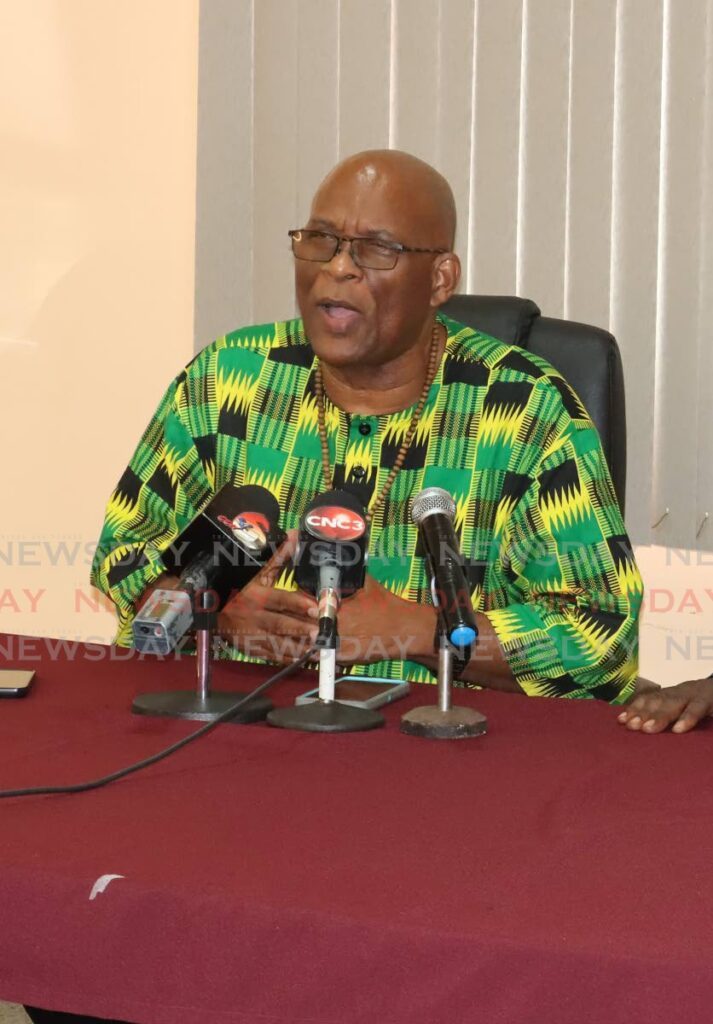

GENERAL secretary of the National Trade Union Centre of Trinidad and Tobago (NATUC) Michael Annisette has defended the “right” of trade unions to engage in politics.
This comes after THA minority leader Kelvon Morris spoke out against the political involvement of unions.
“Let me be unequivocal, the right of trade unions to engage in politics is non-negotiable. Historically, trade unions have played a vital role in political discourse and their involvement is both a democratic and social right. NATUC remains steadfast in protecting this right and will continue to defend it vigorously,” Annisette said in a media release on March 31.
Annisette said Morris “appears to be afflicted by a convenient case of amnesia” as he referred to past union leaders whose actions have influenced TT’s history.
“How else could he overlook the pivotal and enduring role that labour has played in shaping the political history of TT and the wider Caribbean? Is there no sense of pride or reverence for iconic figures such as A.P.T. ‘Fargo’ James, Cpt Arthur Andrew Cipriani, Tubal Uriah ‘Buzz’ Butler, Adrian Cola Rienzi, Basdeo Panday and Errol McLeod from TT?
>
“...These trade unionists and political leaders left indelible marks on their respective nations, blending labour activism with political leadership to champion social justice and workers' rights.
He called the statement that trade unions should not get involved in politics “utterly nonsensical, devoid of logic and fundamentally flawed.”
“Such rhetoric reflects a dismissive and disingenuous attitude toward the historical and ongoing role of trade unions in political affairs.
“At NATUC, we firmly believe that Mr Kelvon Morris's stance mirrors a broader trend among emerging political and business elites. This new ideology seeks to depoliticize the labour movement as part of a deliberate effort to diminish its influence and weaken its capacity to advocate for workers' rights and social justice.”

However, Morris stood by his statements. In a Facebook post on March 31, Morris said while he respects the role of trade unions, his point remains.
“Union leaders best serve their members when they remain apolitical and focused on their core mandate, protecting workers’ rights without fear or favour. There is a stark difference between a political party born out of the struggles of labour and trade unions entangling themselves with a political party of convenience. The latter has seldom ever worked in the best interest of workers.
Morris said before the 2010 election the UNC signed the Fyzabad Accord and made promises to secure union support.
“But once in office, they blatantly betrayed those very unions, violating every key provision of the agreement and forcing the MSJ to withdraw from the UNC-led People’s Partnership government.
>
“Workers were left abandoned and the unions that hitched their wagon to the UNC were cast aside the moment they were no longer politically useful. That is not opinion, it is fact. It is history. And it raises a serious question, why would trade unions, particularly NATUC, now rally behind the UNC again? Have they forgotten how that political entanglement ended the last time?”
He said union leaders exist to serve the workers who fund their “big paychecks”, not political parties.
“Members of these trade unions must now challenge their leaders and ask, how can you represent us impartially if you are in bed with a party that could be the government of the day? How can you advocate without fear or favour when your allegiance is already pledged?
"History has already taught this lesson. Those who forget it are doomed to repeat it. Perhaps it is NATUC, not I, that is suffering from convenient amnesia.”


